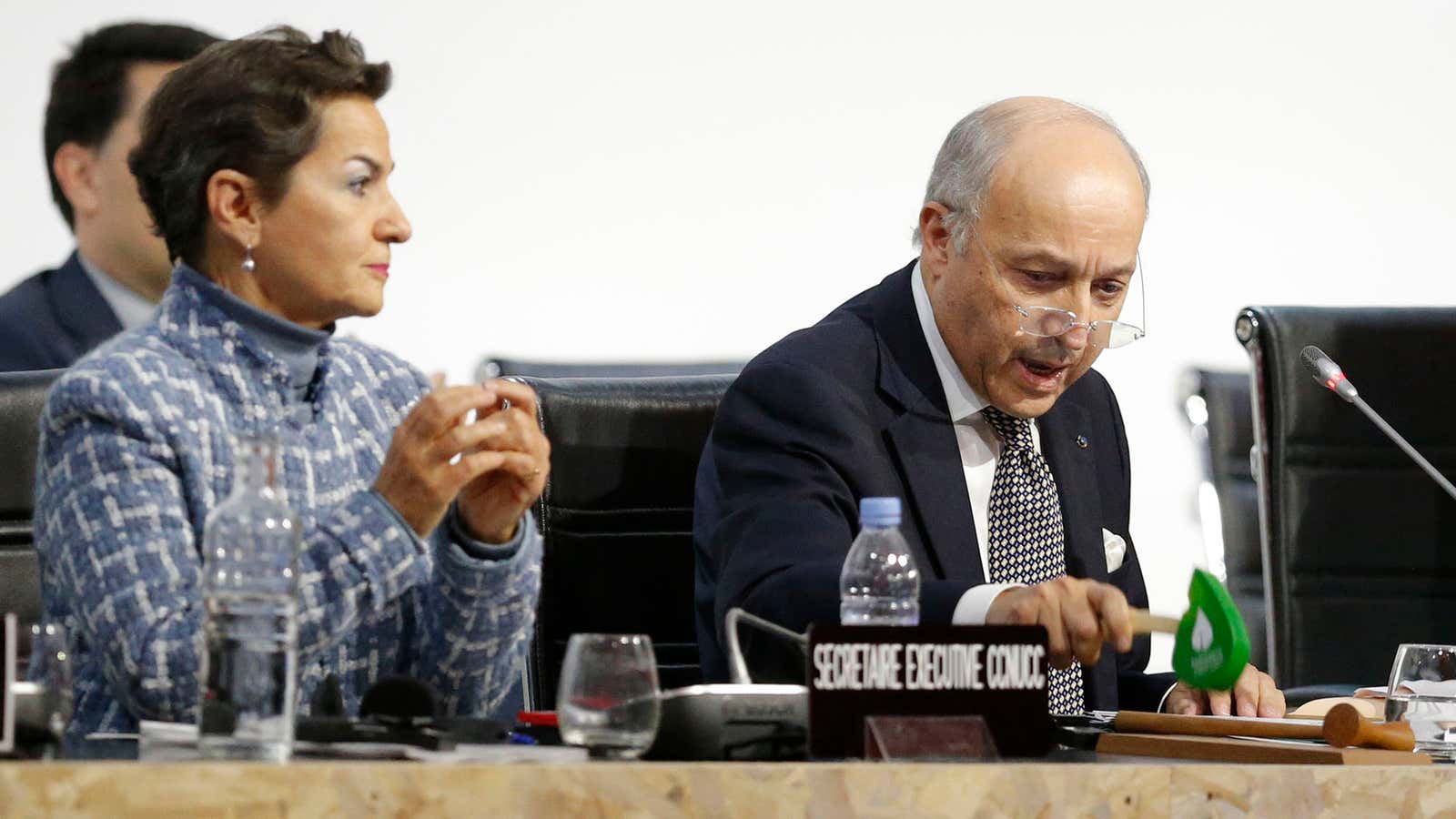History was made on Saturday (Dec. 12) when 195 countries reached a climate-change deal. But on the last day, a single word nearly stopped the deal from going through.
So what exactly happened?
In the last few hours of negotiations, all countries had to make some sort of compromise to reach a consensus. The US, India and China—the world’s three biggest polluters—accepted that they would have to try to limit global warming to under 1.5 °C of pre-industrial levels. Developed countries accepted partial blame for having caused whatever warming has occurred so far. And developing countries agreed not to seek damage liabilities from developed countries.
The final text of the draft agreement was presented at 1.30pm local time, and countries were asked to “take it or leave it.” But US secretary of state John Kerry objected to a single word in Article 4.4. This is how the law firm Norton Rose Fullbright explains it:
This article requires developed countries to undertake economy-wide absolute emission reduction targets but developing countries to only “continue to enhance” their mitigation efforts. In the draft that was presented for adoption there were two critical words—“shall” and “should”. The expression “shall” applied to the developed countries’ obligation and the word “should” applied to the developing countries’ obligation.
The US wanted both developed and developing countries to agree on the same, more lenient word: “should.” In effect, the US only wanted to commit to trying to cut emissions, but not be legally bound to do so. Without the US onboard, the deal couldn’t go through.
When this came to light, developing countries argued that changing “shall” to “should” would be crossing a “red line.” These red lines—used in an African negotiation technique employed at the summit—were critical in bringing all 195 countries toward consensus. Now, after months of preparation and weeks of debate, the deal hinged on a single word.
The French asked the US to raise its objection in public—but the US realized it would look bad as the sole country that didn’t want to play ball. Moreover, it would open the door for other countries to start raising objections, and the deal would in all likelihood fall apart.
In the end, France proposed a diplomatic solution, decreeing that “shall” was a typographical mistake, and should have been “should” all along.
Developing countries were not pleased. “It’s a typo we will refer to many times because frankly speaking, nobody’s buying that,” Tosi Mpanu Mpanu, the DR of Congo’s lead envoy, told ClimateHome.
At 7.30 pm, the French foreign minister stood up on stage with a gavel in his hand. “I see the room, I see the reaction is positive, I hear no objection. The Paris climate accord is adopted,” he said and brought the gavel down.
The United States, France, and the UN have all refused to comment what happened in the last few hours of the Paris talks, according to the Guardian. It remains to be seen whether France’s face-saving solution will end up being a diplomatic masterstroke, or a fatal undermining of the global commitment to fight climate change.
